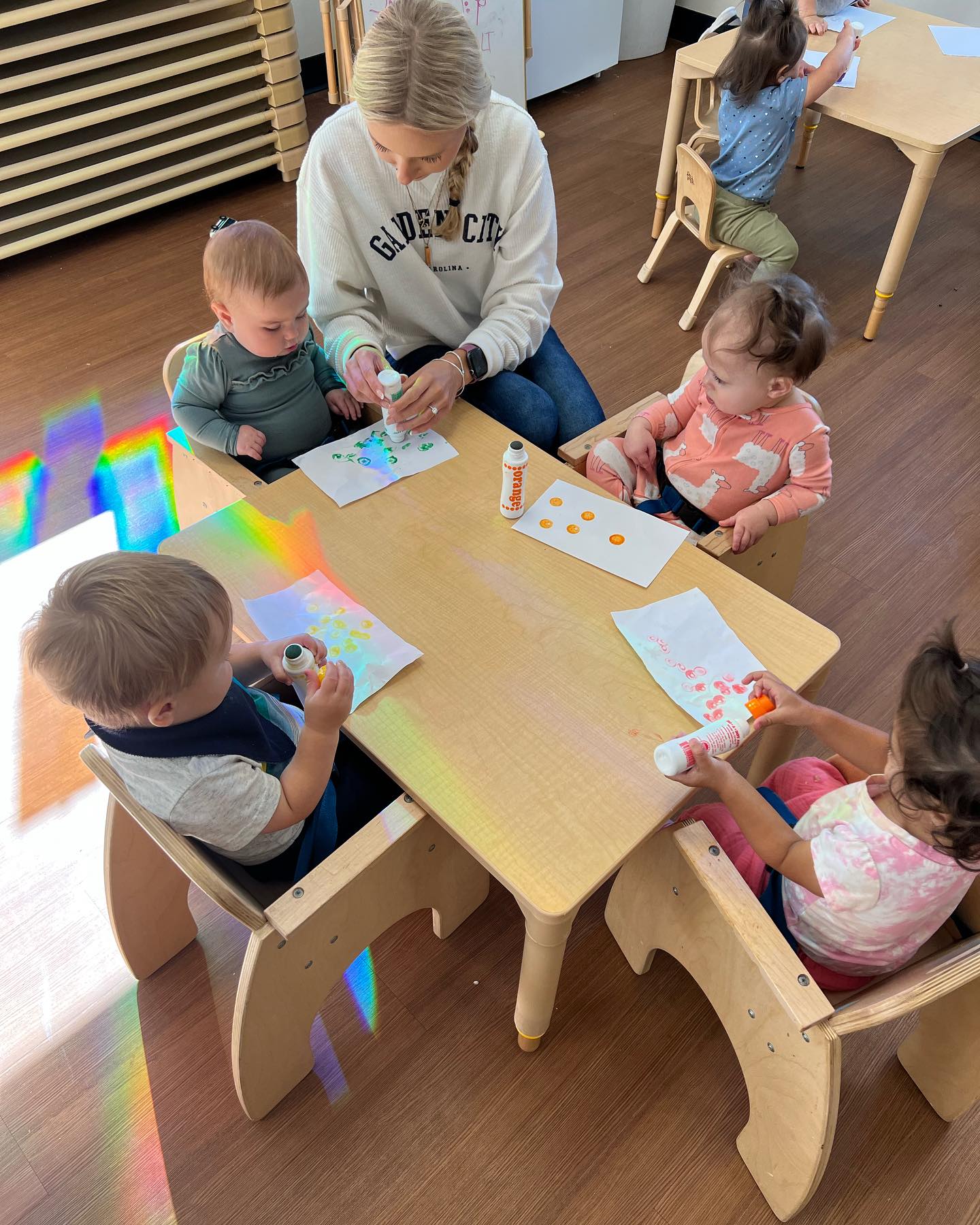Every September, we dive into the research and reasoning of our curriculum we implement at The Learning Tree. The HighScope curriculum is a research-based, child-centered approach to early childhood education that emphasizes active learning, where children explore and interact with the world around them. Lesson planning within the HighScope framework is flexible, focusing on fostering independent learning, problem-solving, and social development.
In HighScope classrooms, teachers plan lessons that are driven by children’s interests and developmental needs. Weekly lesson plans incorporate a balance of teacher-guided and child-initiated activities, allowing for both structured learning and open-ended exploration. Key components include plan-do-review sessions, where children make choices, carry them out, and reflect on their activities. These sessions promote cognitive growth, language development, and social skills.
To assess children’s development and progress, HighScope uses the Child Observation Record (COR), a formative assessment tool that tracks children’s progress across various developmental domains. COR assessment is based on real-time observations of children’s daily activities and behaviors. Teachers record and categorize these observations into key areas, such as language, social-emotional development, and physical coordination. The data gathered helps teachers tailor future lesson plans to meet each child’s unique needs, ensuring that their learning is both individualized and developmentally appropriate.
By integrating lesson planning with ongoing assessment, the HighScope curriculum provides a dynamic, responsive educational experience that promotes holistic development for young children.

